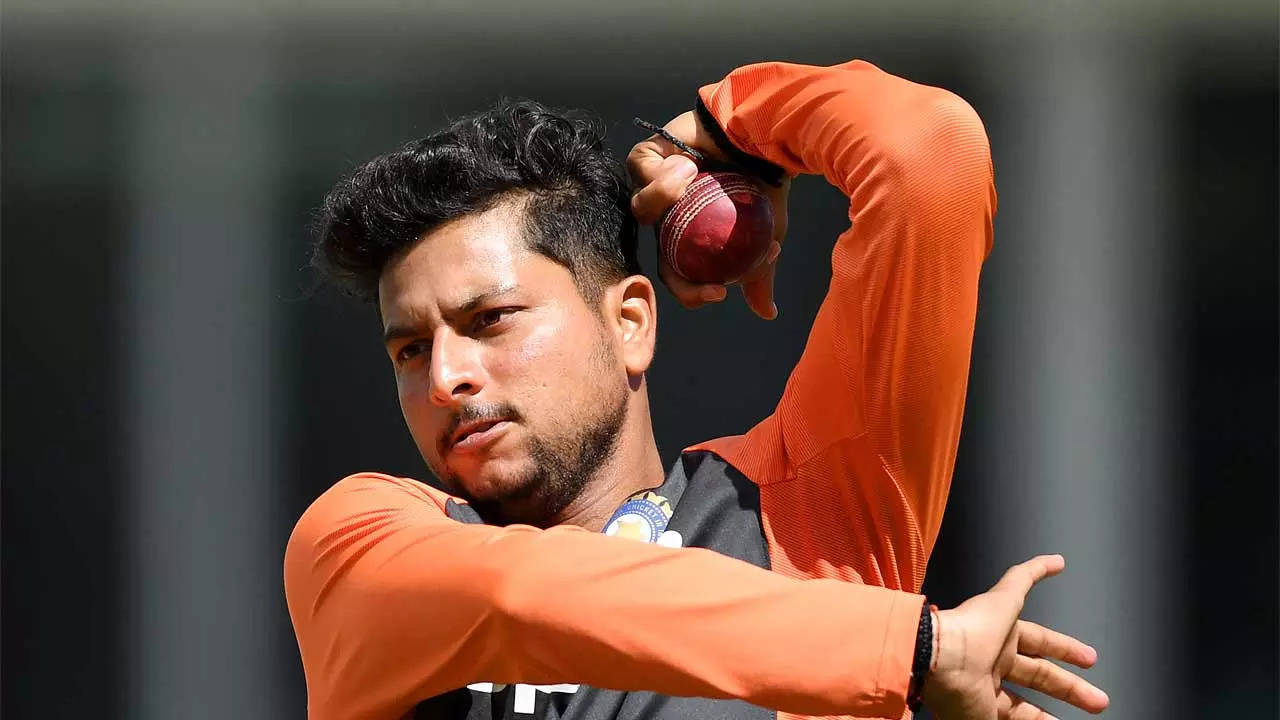CHENNAI: Let’s take you back to a chilly November afternoon in 1987 in Kolkata. England were playing the World Cup final at the Eden Gardens against Australia and were closing in on victory. With 120 more to get, captain Mike Gatting tried a reverse-sweep off Allan Border and looped a catch to the wicketkeeper. England went on to lose the final and had to wait for another 32 years to win it and Gatting had to bear the cross of trying an “irresponsible shot” for the rest of his playing career.
Cut to January 2024. The first Test against India appears all but gone for England against the sharp turn of R Ashwin, Ravindra Jadeja and Axar Patel on the black-soil Hyderabad turner. A capitulation of the visitors within three days would be par for the course when Ollie Pope, the No. 3 England batter, decided to counter-attack. And what’s his biggest weapon? The reverse sweep.
A stroke that Gatting himself rued as “wrong shot selection” in the 1987 World Cup final has now become the cornerstone of the nation’s “greatest Test win in the subcontinent”. How has this transformation happened? Is it due to ‘Bazball’? To understand the freedom with which Pope, the second-most orthodox batter in this lineup after Joe Root, played the shot, we need to understand the philosophy behind the approach.
For starters, ‘Bazball’ is not “Test match cricket played T20 style”, as the Indian broadcasters are selling it during every commercial break. It goes way deeper than that and what coach Brendon ‘Baz’ McCullum has done to this English side is to allow players to unshackle their minds from the fear of failure.
Before coming to India, the England team figured that only the conventional sweep against the turning ball of Jadeja and Axar won’t take them too far. So it was mandatory that they had three variants of the sweep reverse, scoop and traditional to throw the spinners off their lengths. Even in the case of the reverse sweep, there are two variations. As Dinesh Karthik, himself a good player of the reverse sweep, explained in commentary, the reverse sweep that the English batters are playing right below their eyeline is an attacking shot while the one that is being played slightly away from the body is a defensive shot that is being employed to get a single along the ground.
But it’s one thing to theorize and completely a different ball-game to execute on a turner against the best spinners of the world. Pope himself explained how a lot of hard work has gone into getting the shot right ahead of the tour. “The Indian spinners are extremely skilled. If you try and defend each ball, there’s probably more of a chance to get out, rather than play with cross-bat shots. We practised those shots enough at Abu Dhabi during our training camp before coming here. I think you have to just commit to it,” Pope said.
He went on to add that “it could be as safe as defence, playing a reverse sweep or a sweep”. “It is also going to lead to more half-volleys too from the bowlers,” Pope said, explaining how it throws the bowlers off their preferred line and length. At the end of the game, Indian captain Rohit Sharma too suggested that they were not expecting this kind of an assault. The fact that Jadeja seemed to have pulled a hamstring might also be a cause for worry leading up to the Vizag Test in four days’ time.
Anil Kumble, during a post-match analysis, said he expects the ball to turn faster in Vizag than it did in Hyderabad. According to the former India coach, the most obvious replacement for Jadeja would be Kuldeep Yadav. “The wrist spin of Kuldeep brings in a new dimension to the attack. India already have (offie) Ashwin and (left-arm finger spinner) Axar, so Kuldeep has to be the obvious choice,” Kumble said.
In recent times, we have seen that Kuldeep has been able to bowl a little faster through the air and still get that turn which is essential to be successful on the kind of pitches that India play on.
It remains to be seen if England are ready for this, since the lion’s share of their pre-tour preparations revolved around quick left-arm finger spin.
